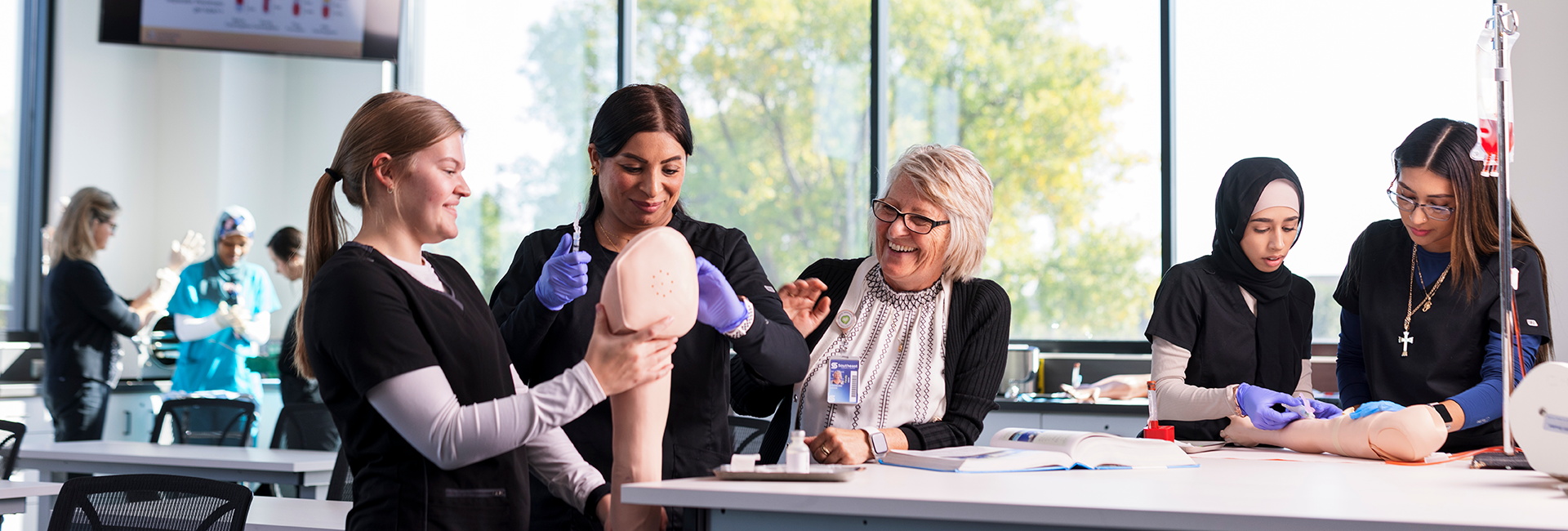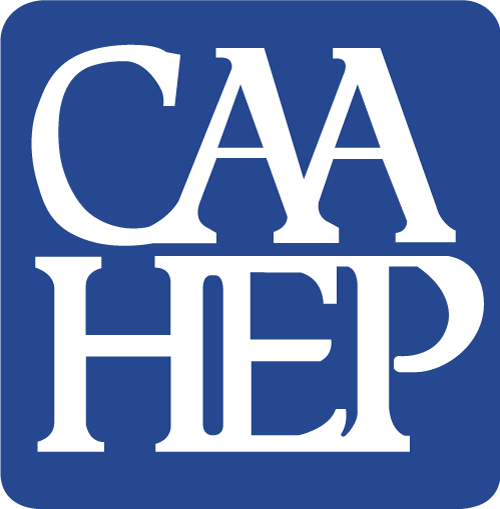
Medical Assisting
Transforming Lives as a Vital Healthcare Team Member
Our Medical Assisting program helps you launch your healthcare career. As a medical assistant, you are a vital link between doctors and patients. You will learn to take vital signs, draw blood, assist with minor surgeries, schedule appointments and handle insurance claims. Our comprehensive medical assistant training prepares you for work in various medical settings, from family practice to specialty clinics. With hands-on experience during your required practicum, you'll graduate ready to make a meaningful difference in patient care.
PROGRAM OBJECTIVES
Clinical Skills
Develop essential clinical skills needed in a doctor's office including taking vital signs, performing blood draws, administering injections and assisting with minor surgeries. You'll learn to conduct various diagnostic tests on blood, urine, and other body fluids.
Administrative Proficiency
Learn critical front-office procedures including appointment scheduling, patient check-in, telehealth coordination, insurance processing and medical coding.
Patient Communication
Build strong interpersonal skills to effectively communicate with patients in various settings. You'll gather accurate patient information and create a comfortable environment that puts patients at ease.
Medical Assisting
Diploma
Locations: Lincoln / Online
Medical assistants work directly with physicians and patients. They perform both clinical duties and administrative tasks.
ESTIMATED TUITION
$3,750
CREDIT HOURS
30
PROGRAM LENGTH
3 Terms
SCHEDULE
Full-Time / Part-Time
STARTING TERM
Fall / Spring / Summer
WHY SCC?
Can I take medical assisting classes online?
Some classes in our Medical Assisting program can be completed online. However, labs and practicums are taken in-person to ensure you develop the hands-on skills needed for success.
Where do medical assistants work after graduation?
Our graduates work in a variety of settings including family practice, cardiology, pediatrics, urgent care, dermatology, OB-GYN, and many other specialty clinics.
What skills do I need to become a successful medical assistant?
Successful medical assistants are detail-oriented with strong analytical, interpersonal and technical skills. Empathy, compassion and effective communication are essential in this fast-paced healthcare environment.
Are there opportunities for advancement after completing a medical assistant program?
You'll gain valuable experience in your desired healthcare field with the option of continuing your education.
CAREER OUTCOMES
Medical Assistant
Work directly with physicians in medical offices performing both clinical procedures and administrative tasks. Medical assistants ensure smooth patient flow and provide essential support to healthcare providers.
Medical Office Administrative Assistant
Focus on the administrative aspects of healthcare including managing electronic health records, scheduling appointments, processing insurance claims and handling patient billing. These professionals ensure efficient office operations and excellent patient service.
Medical Records Specialist
Organize and maintain patient health information data, ensuring its quality, accuracy, accessibility and security. These specialists often specialize in medical coding for insurance reimbursement and maintaining compliance with healthcare regulations.
Clinicals
In what term do students start clinicials?
Students complete clinicals in their last term.
Where do students participate in clinicals?
Most clinicals are completed in doctor’s offices in Lincoln, but can also be arranged in a student’s hometown (within Nebraska).
In general, what time of day and days of the week can students expect to attend clinical?
Within the clinics hours, generally Monday - Friday, 8 a.m. - 5 p.m. Students attend clinicals a minimum of three days per week.
Will the program help student secure their sites? Do students need to contact clinical sites prior to acceptance/placement?
The practicum coordinator will place students based on required hours and availability. Students should not contact potential clinical sites. If a student wants to complete clinicals outside of Lincoln, they should talk with the program chair prior to starting classes.
How many clinical hours do students complete in the program?
225 hours - students typically complete 28, eight-hour days (some flexibility is available)
Medical Assisting Program Accreditation
Additional Program Requirements
Getting Started
Application to the SCC Medical Assisting program involves two steps. First, students must achieve specific math and reading test scores or complete specific English and math college courses to be eligible to be admitted to the program. Second, once students achieve the required test scores or complete required courses, they can apply to the program.
Forms and Documents
State Authorization Reciprocity Agreement Institution
Southeast Community College is a State Authorization Reciprocity Agreement Institution (NC-SARA) institution. As such, SCC is unable to offer online or distance courses to students in the following areas at this time: American Samoa, Guam and the Commonwealth of the Northern Mariana Islands.
State Licensure or Certification Requirements
Completion of a Medical Assisting education is required in seven (7) states: Connecticut, South Carolina, Delaware, Massachusetts, New Jersey, North Dakota, and Washington.
Southeast Community College’s program is accredited by the Commission on Accreditation of Allied Health Education Programs (CAAHEP) and satisfies the requirements in those states. Because the remaining 43 states do not require a formal medical assisting education, graduates of SCC’s Medical Assisting program may seek employment in all 50 states, the District of Columbia, and all U.S. territories.
